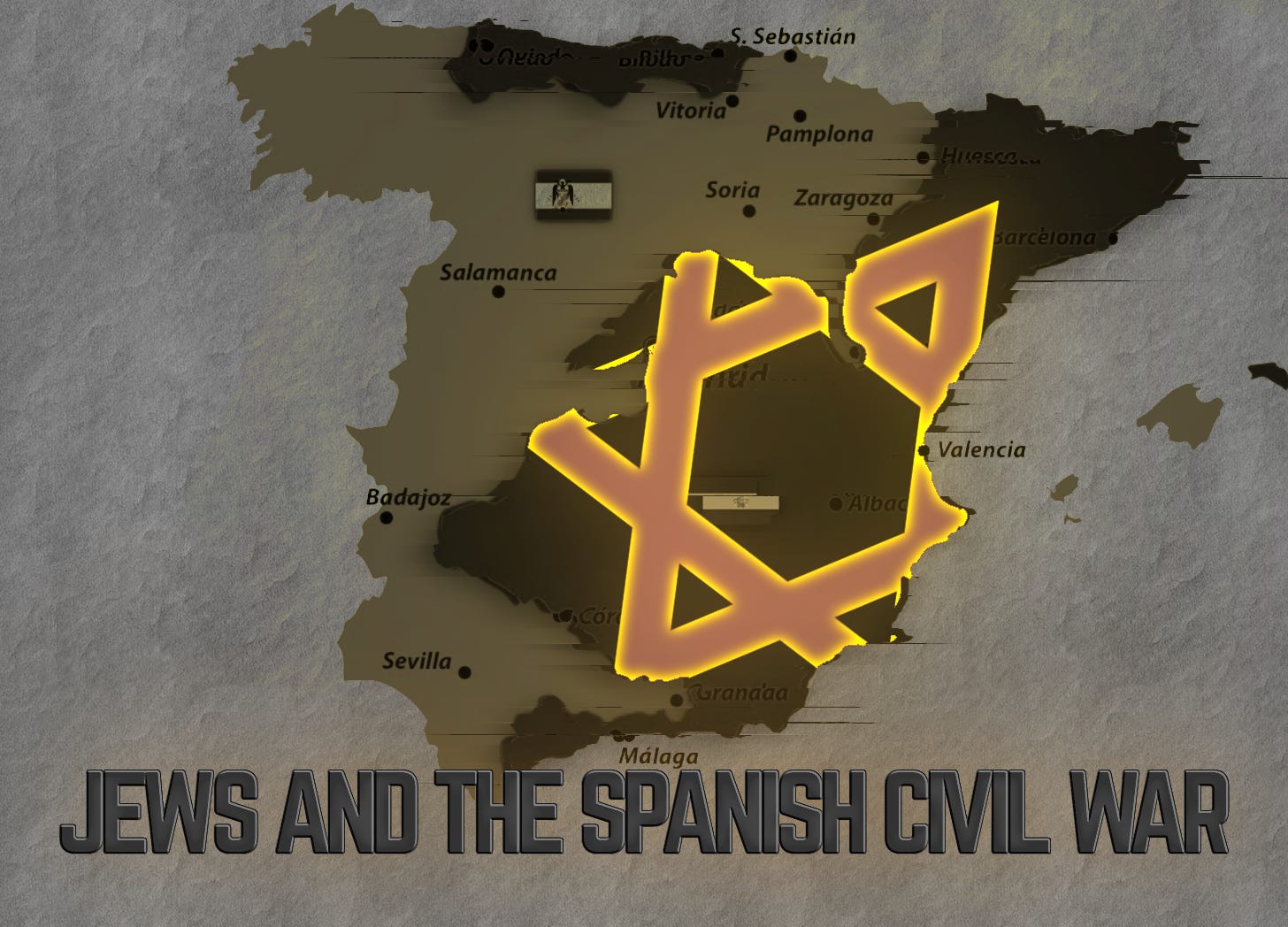Jews and the Spanish Civil War
Since their expulsions in the medieval period, the Jewish population in Spain has never exceeded 50,000. Because of this, there were almost no Jews in the leadership of the Spanish Communist party. Despite this, Jews made up a massive percentage of the foreign fighters who went to Spain to fight against Franco. According to The Times of Israel, “about 35,000 volunteers from more than 50 countries joined the International Brigades. Upwards of 4,000 were Jewish”.1 This is 8.7% of the total volunteers for the Spanish Republican forces. The 4,000 number is a lowball estimate, in contrast the Abraham Lincoln Brigade Archives estimated that “6,000 to 10,000 of these volunteers were Jews”.2 The Jewish Virtual Library stated that “up to 25% of all the IB Fighters were Jewish”.3 The Jewish Virtual Library also broke down the number of volunteers by country, stating that 38% of American volunteers, 48% of the American medical volunteers, 45% of Polish volunteers, “virtually all” of the Polish medical volunteers, 15% of French Volunteers, 15% of British volunteers, 10% of Argentinian volunteers, and “virtually all” of the Romanian volunteers were Jewish.4
The Soviet Union sent the NKVD to Spain to coordinate their aid to the Republicans. While there, they also set up secret camps where they tortured political prisoners.5 During this time, 40% of high ranking NKVD officers and 50% of NKVD generals were Jewish.6
The international brigades did not just organize themselves. They were organized mainly by the Communist International.7 The Communist International was founded by the quarter Jew8 Lenin, who once remarked that he believed “the clever Russian is almost always a Jew or has Jewish blood in him”.9 The first chairman of the Communist International was the Jew10 Grigory Zinoviev.
There were a few other volunteer organizers of minor significance not directly associated with the Communist International. The most prominent of these was the Jew Carlo Rosselli.11
Notice how many of the medical volunteers were Jewish. This is because the Communist International had their own version of the Red Cross called MOPR, which mainly served as a support group for communist revolutionaries.12 This organization “came from Polish Communists”,13 90% of whom were Jewish.14
Why were there so many Jewish volunteers, despite Jews at the time being only 0.8% of the world population? According to the Jewish Chronicle, “the high number of Jewish recruits to the International Brigades was a function of the over-representation of Jews in socialist and communist parties – itself the result of those parties’ opposition to anti-Semitism”15 According to the Jewish Telegraphic Agency, the Second Spanish Republic was attempting to grow it’s Jewish population and grant more Jews citizenship, policies that the nationalists sought to end.16 Jews knew of these policies and knew the nationalists wanted to end them, as the Jewish virtual library states
“The Jewish Chronicle, usually at that time reflecting a Board of Deputies viewpoint, reported on Oct 2nd 1936 page 12, a meeting called by the Jewish Labour Council, under the heading, ‘Spain’s fight is your fight’, describing the speaker, Mr J Jacobs, as saying, ‘Jews in Britain must organise to fight for their co-religionists in Spain. General Franco has threatened to turn back the clock to 1493 – the time of the Jewish persecutions. Once the international Fascists win in Spain, they will march on’. Clearly he linked the fight against the Fascists with the fight against anti-Semitism, and this explains clearly and conclusively the reason why Jews were so disproportionately represented in the British Batallion which went to Spain.”
In other words, Jewish influence in Spain was slowly growing and when the Nationalists threatened this, thousands of Jewish volunteers came out of the woodwork attempting to prop up the unpopular Spanish Republican government.
ibid.
Snyder, Timothy. Bloodlands: Europe Between Hitler and Stalin. Ukraine, Basic Books, 2012. p.93
Volkogonov, Dmítríj, and Volkogonov, Dmitri. Lenin: a new biography. United Kingdom, Free Press, 1994. p. 112
Slezkine, Yuri (2011). The Jewish Century. Princeton: Princeton University Press. p. 90




